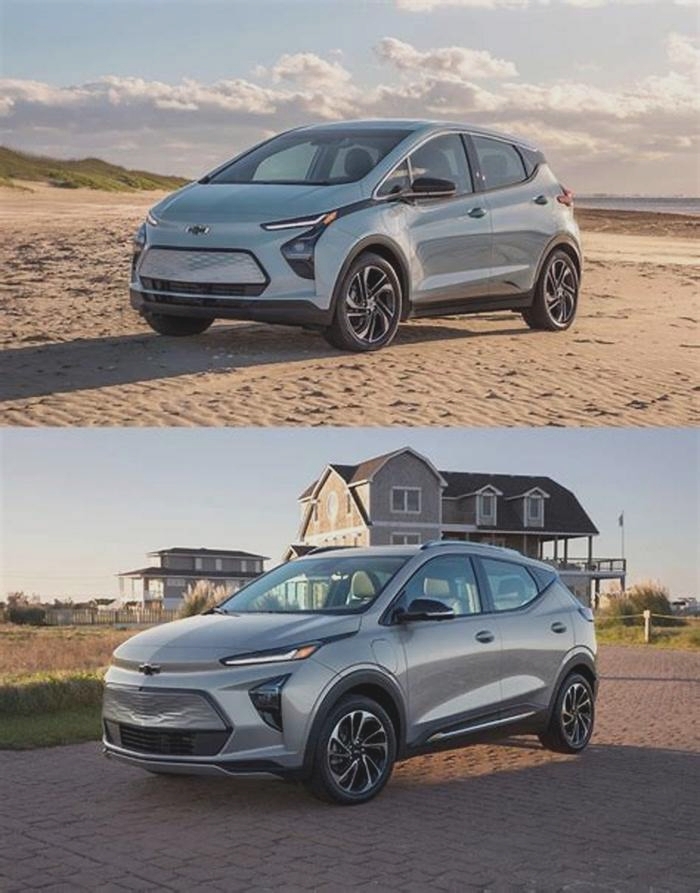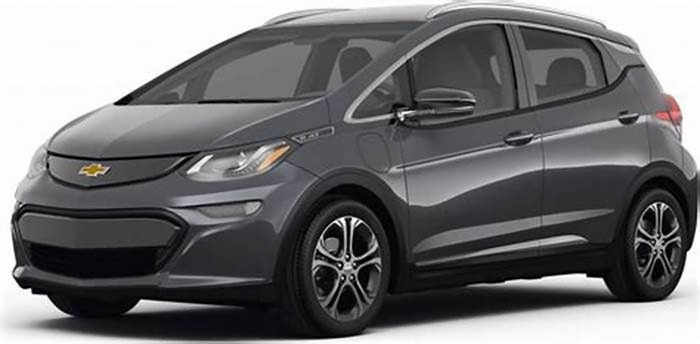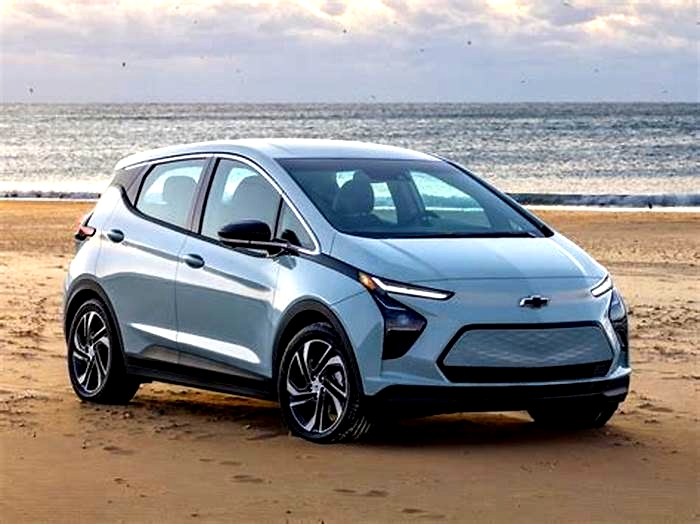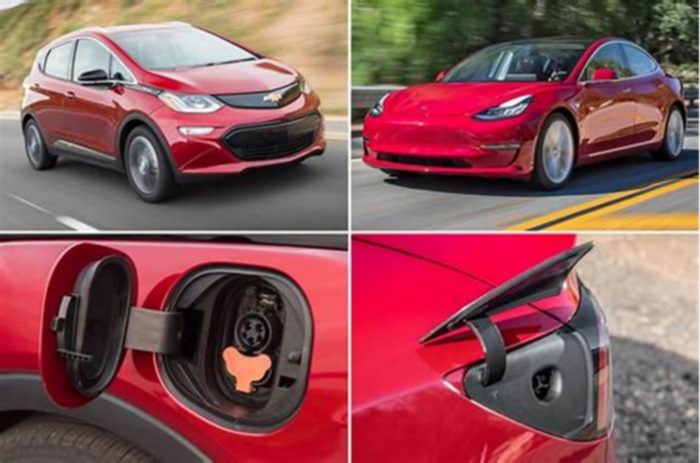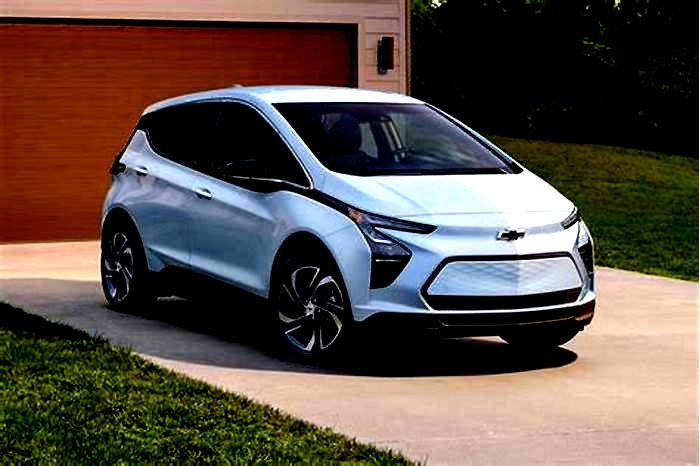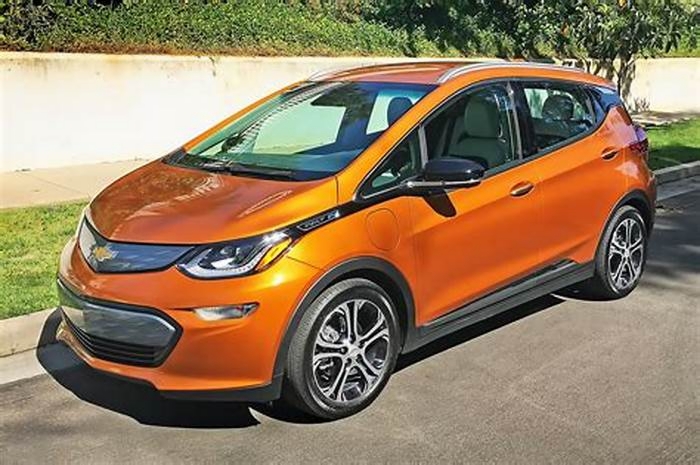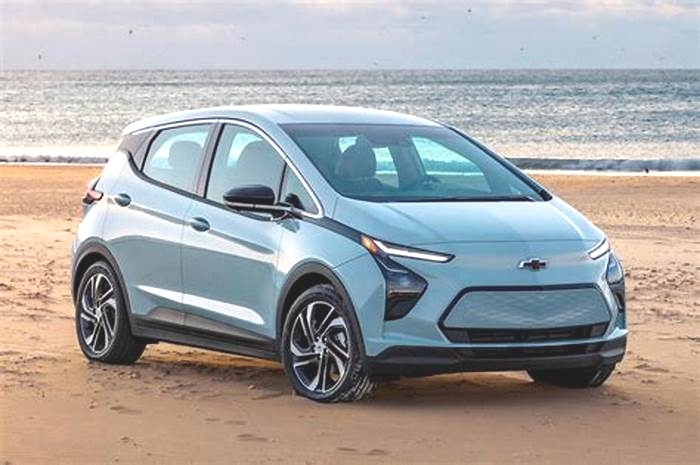Why are they discontinuing the Chevy Bolt
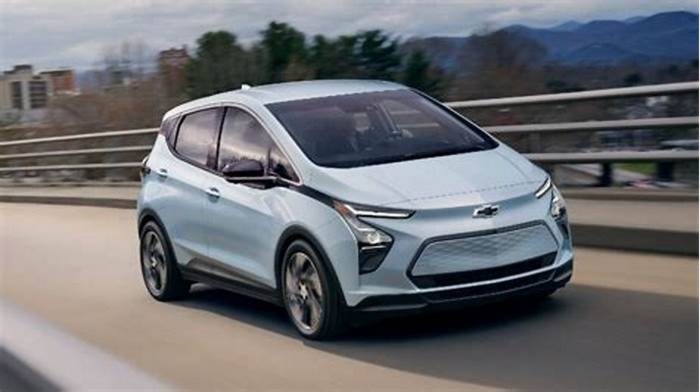
Why the Chevy Bolt Was Discontinued
The current Bolt and Bolt EUV debuted back in 2021. They have been a hit. GM sold 38,000 of them last year, a 53.5% jump. They are on pace to double that tally in 2023. With a solid 259 miles of range, reasonable performance and price tags starting below $30,000 (not counting the federal tax credit they are also eligible for), the Bolt and Bolt EUV are the best-value EVs on the market.
So, naturally enough, Chevy is killing the Bolt and Bolt EUV at the end of 2023. Heres why.
The Bolt is not a money-maker for GM
The Bolt was an investment in building an EV ecosystem. Early reports had GM losing $9,000 per vehicle sold. Recalls have been costly. We dont have the exact figures. But its safe to say that the Bolt and Bolt EV are not mission-critical (and may even be mission-detrimental) to GM turning a profit on EVs by 2025.
The Bolt is also really dated
GM has been launching an onslaught of new EVs on its next-gen Ultium platform. The ultimate goal of Ultium (Ill show myself out) is to make building EVs cheaper with better battery technology, shared components and simplified production. The Bolt and Bolt EUV still use a modified, bespoke platform from 2016 with costly batteries.
GM needed the plant for other EVs
The Bolt and Bolt EUV are built at GMs Orion Assembly plant in Michigan. GM had already announced plans to retool that plant to ramp up production of the Chevy Silverado EV and GMC Sierra EV pickups in 2024. That same consideration killed the car journalist-beloved Volt hybrid.
What will replace the Chevy Bolt? Meet the Equinox EV
Chevy does have an entry-level replacement for the Bolt and Bolt EUV coming with the Ultium-based Equinox EV. It arrives in Fall 2023. It will be a little bigger and more stylish. It will start at around $30,000. GM is estimating a maximum range of 300 miles. And it can add around 70 miles of range on a DC fast charger.
But the Bolt nameplate could return at some point
During a Marketplace interview, General Motors CEO Mary Barra was asked about GMs plans to kill off the Chevy Bolt. She hinted at (but did not confirm) plans to replace the Bolt EV with an Ultium-powered vehicle to slot below the Equinox.
Bolt is something that has built up a lot of loyalty and equity, Barra said. I cant say more because I dont discuss future product programs. But, you know, it was primarily a move from a second generation to a third generation. But thats (an) important vehicle in our portfolio.
TopSpeed
During General Motors' earnings call in late April 2023, CEO Mary Barra confirmed that the Chevrolet Bolt and Bolt EUV would be discontinued by the end of 2023. However, both models have recently reached the production and sales records GM was aiming for since Bolt's launch in 2016. The Chevrolet Bolt, a hatchback, and the Bolt EUV (Electric Utility Vehicle), a more utilitarian variant, sought from their inception to become popular electric vehicles thanks to their affordable base price of $27,000 and a compelling range of 259 miles.
Unfortunately, different problems kept the Bolt in the shadows of other models, specifically the Tesla Model 3. Thanks to an even lower base price and increased range, and having fixed a longstanding and costly battery fire issue, the Chevrolet Bolt has finally managed to become the success GM has been waiting for from the start, which made the decision to discontinue it more surprising. However, Chevy confirmed that the Bolt EV will be making a comeback, so stay tuned as we dive into those details.
Updated on February 11, 2024: This article has been refreshed to reflect current Chevy Bolt release information, as well as recall reports from the automaker. Although this nameplate saw a rocky end to 2022 and 2023, there has been confirmation of a 2025 release of the Bolt EUV.
To provide you with the most accurate and up-to-date information possible, TopSpeed has sourced information from Chevrolet, as well as other credible outlets, including AutoNews as well as official press dockets from General Motors.
The Chevy Bolt, Although Affordable, Fell Too Far Behind
Halting Chevy Bolt EV and EUV production brings tremendous obstacles in accessing cost-effective electric vehicle ownership choices. The discontinuation is particularly disadvantageous because it compromises affordability, which sets it apart from other currently available vehicles. In addition, the Bolt's initial price range is exceptionally reasonable; consumers may benefit from additional savings by availing themselves of an up to $7,500 EV tax rebate towards their purchase.
GM Has Utilized Its Ultium Technology For New Models
Thankfully though, GM has made an inspired shift toward utilizing its cutting-edge Ultium battery technology for upcoming projects such as the Cadillac Lyriq model lineup and others like the Hummer EVT1 pickup truck or GMC Sierra Electric Pickup truck, which is already regarded as better than the Ford F-150 Lightning. This can only mean that Chevrolet is moving ahead with grander plans thanks mainly to these advanced power sources from within planning out a trio (that's three!) of fully-electric SUVs made utilizing what they've learned from this newest technology we have gotten our hands on yet: The Silverado EV, Blazer EV, and Equinox EV.
- Bolt and Bolt EUV models weren't cutting it: The Chevy Bolt and Bolt EUV were cost-friendly, although they were not impressive enough in design, range, horsepower, etc.
Bumpy Track Record Could've Played A Part In The Bolt's Death
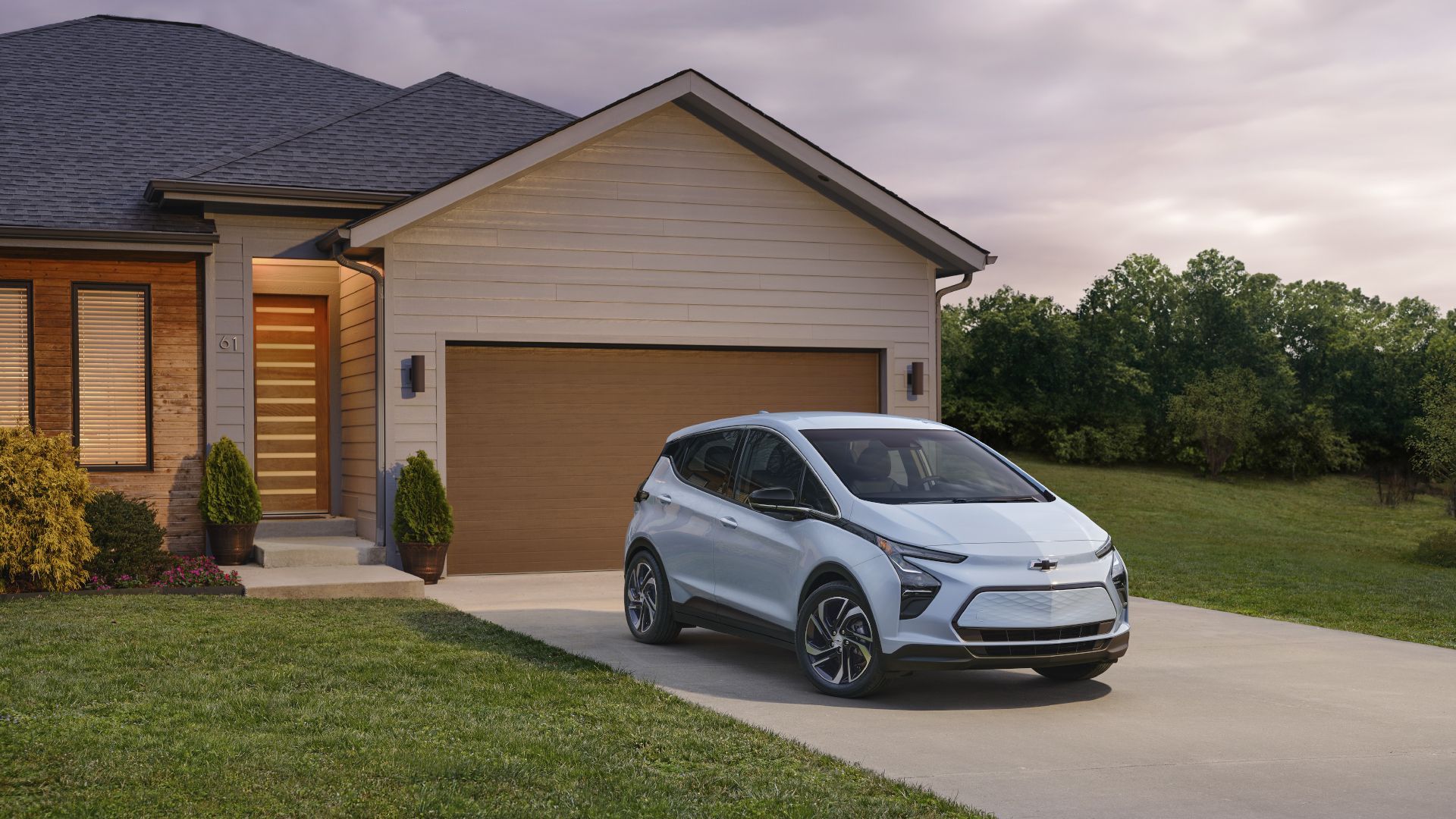
The Chevrolet Bolt EV has received a mixed reputation since its debut. While it was the first to boast an "affordable" price tag and long-range capabilities, it ultimately fell short of meeting its full potential. This was compounded by recalls in 2020 and 2021 due to fire concerns related to defective batteries from suppliers and manufacturers alike.
Reports indicate that at least a dozen Bolts experienced spontaneous fires due to this issue. Regardless, GM executives have continued to tout the Bolt as a prime example of their commitment to electric cars. In fact, they claim that this model has helped draw new customers to the brand; over three-quarters of all Bolt owners were previously driving non-GM vehicles. From 2017-2022 models, Chevy did voluntarily inform customers that their Bolt models *may* have recalled components, which was not a great look for them.
Chevy Chooses To Move Forward
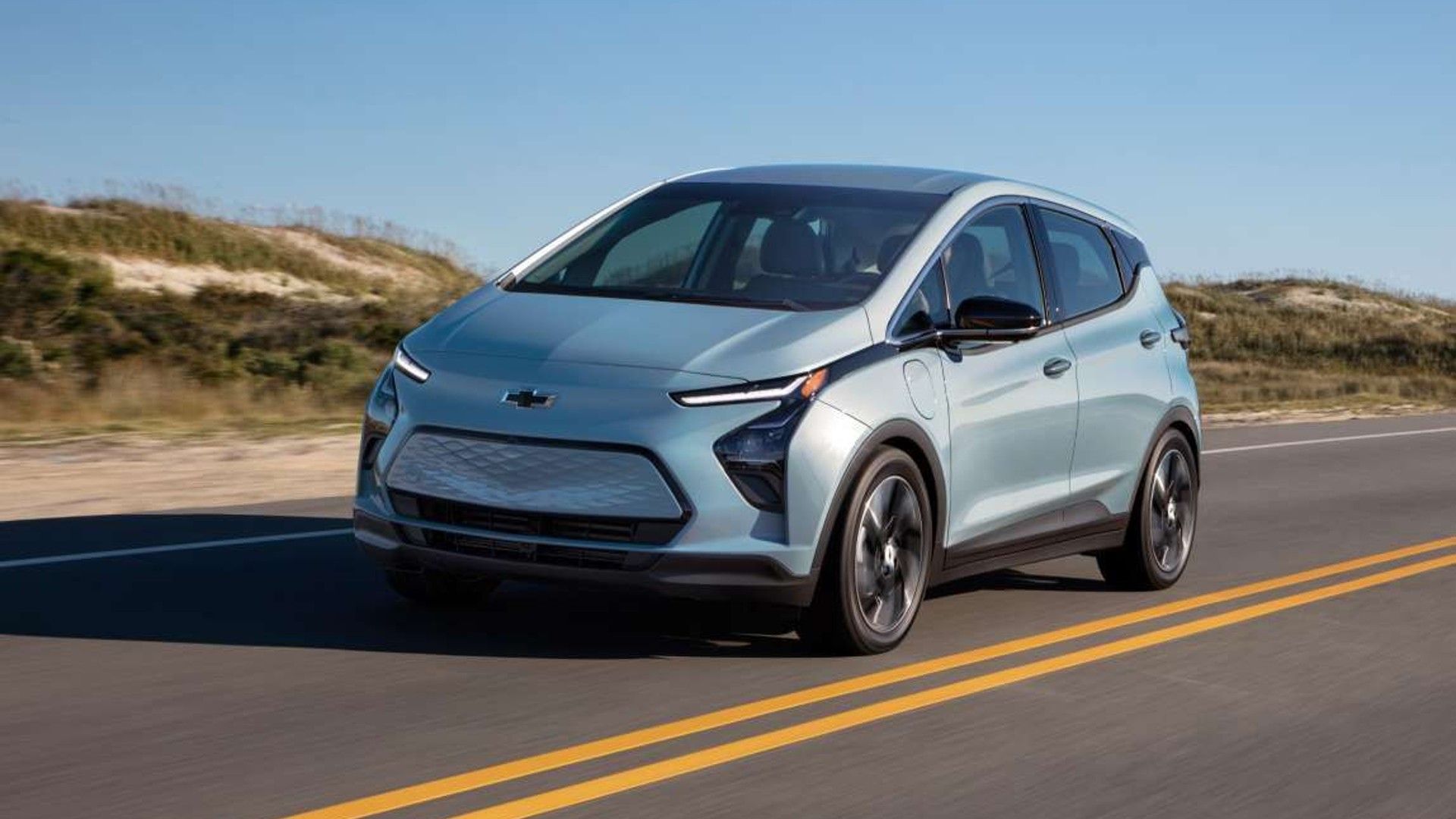
First, however, General Motors must focus on developing a new entry-level electric car that will fit into the upcoming Equinox EV line. Priced at around $30,000 out the door and made in Mexico, experts are eager to see whether this model holds more promise than previous attempts by the automaker have. GM is already making plans for significant ramp-ups in production for this Equinox EV. Again, the Bolt legacy will forever be a part of Chevrolet's electric endeavor: Just a bit more distant for now.
- Recall alert: Chevrolet issued a recall for defective battery components for Bolt models 2017 to 2022, ultimately causing major controversy among owners.
Size Matters: The Chevy Bolt And Bolt EUV Were Too Tiny
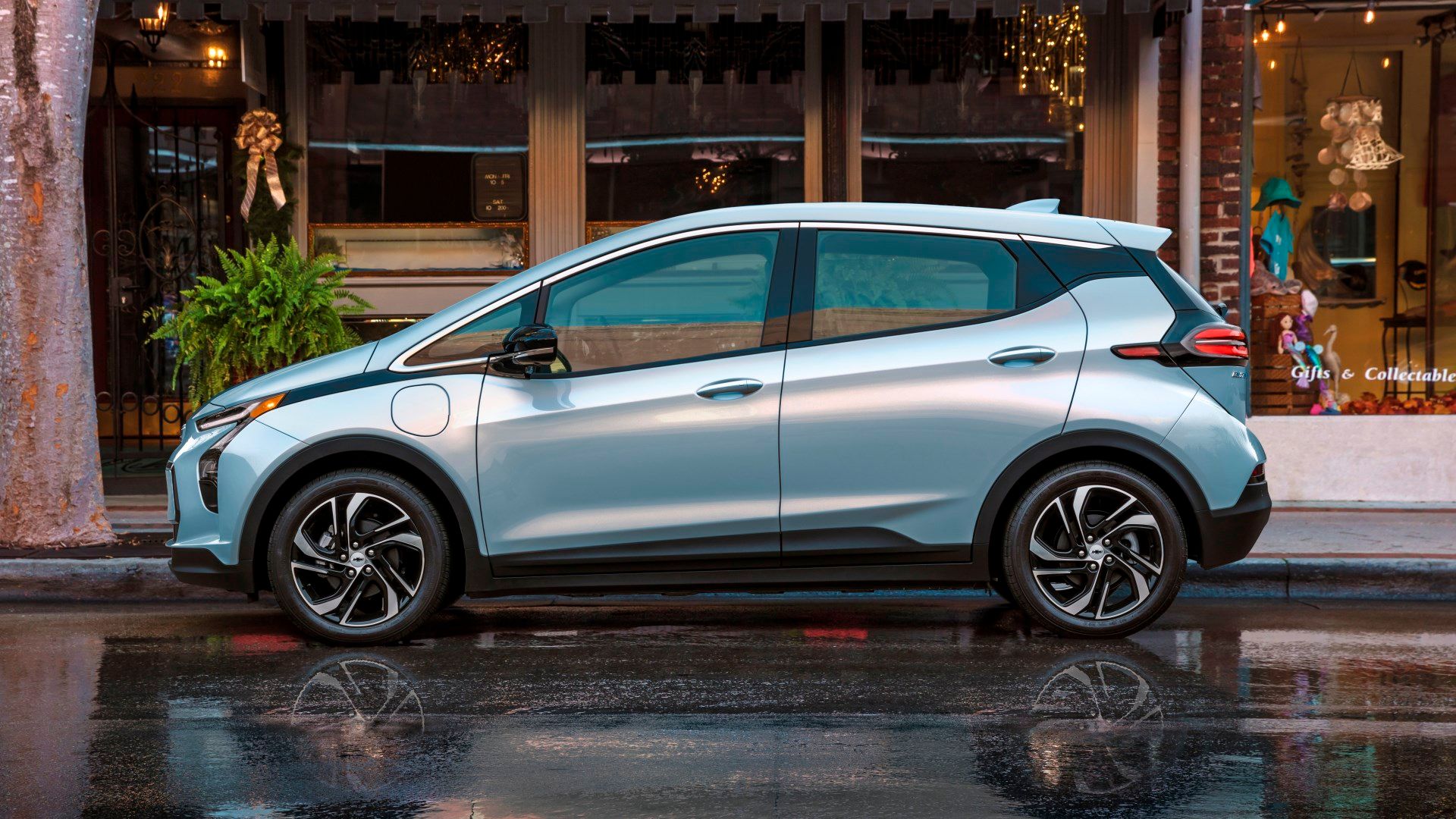
Although the Bolt EUV can accommodate five people comfortably, its size may have been one of the reasons for its downfall, as it is small relative to other cars on the road today. The length difference between this model and its counterpart - the Bolt EV is mostly evident in how spacious it is at the rear, allowing ample room for passengers.
As a result, this electric vehicle suits many drivers' needs just fine for everyday driving, including when traveling with children using a toddler car seat. There's enough legroom at the back for kids, too, not to mention how straightforward it's to comfortably get them into their child seats.
Although It Had A Hatchback Option, The Bolt Wasn't Enough
In addition, the hatchback-like shape provides plenty of cargo space. However, despite these advantages, the U.S. customers tend to show little interest in compact hatchbacks compared to their peers worldwide, who gravitate towards more affordable EV options. On the contrary, in the United States, the trend tends toward extremely powerful cars and massive batteries, which translates to high production costs and longer charging times.
Chevrolet Bolt EV and EUV Dimensions
Bolt EV | Bolt EUV | |
Length | 163 inches | 170 inches |
Width | 70 inches | 70 inches |
Height | 63 inches | 64 inches |
(Specs sourced from Chevrolet)
RelatedCurrently one of the cheapest alternatives on the market, the Chevy Bolt is about to be discontinued and we have some decent alternatives for it.Missed Bolt? The EUV Is Coming Back In 2025
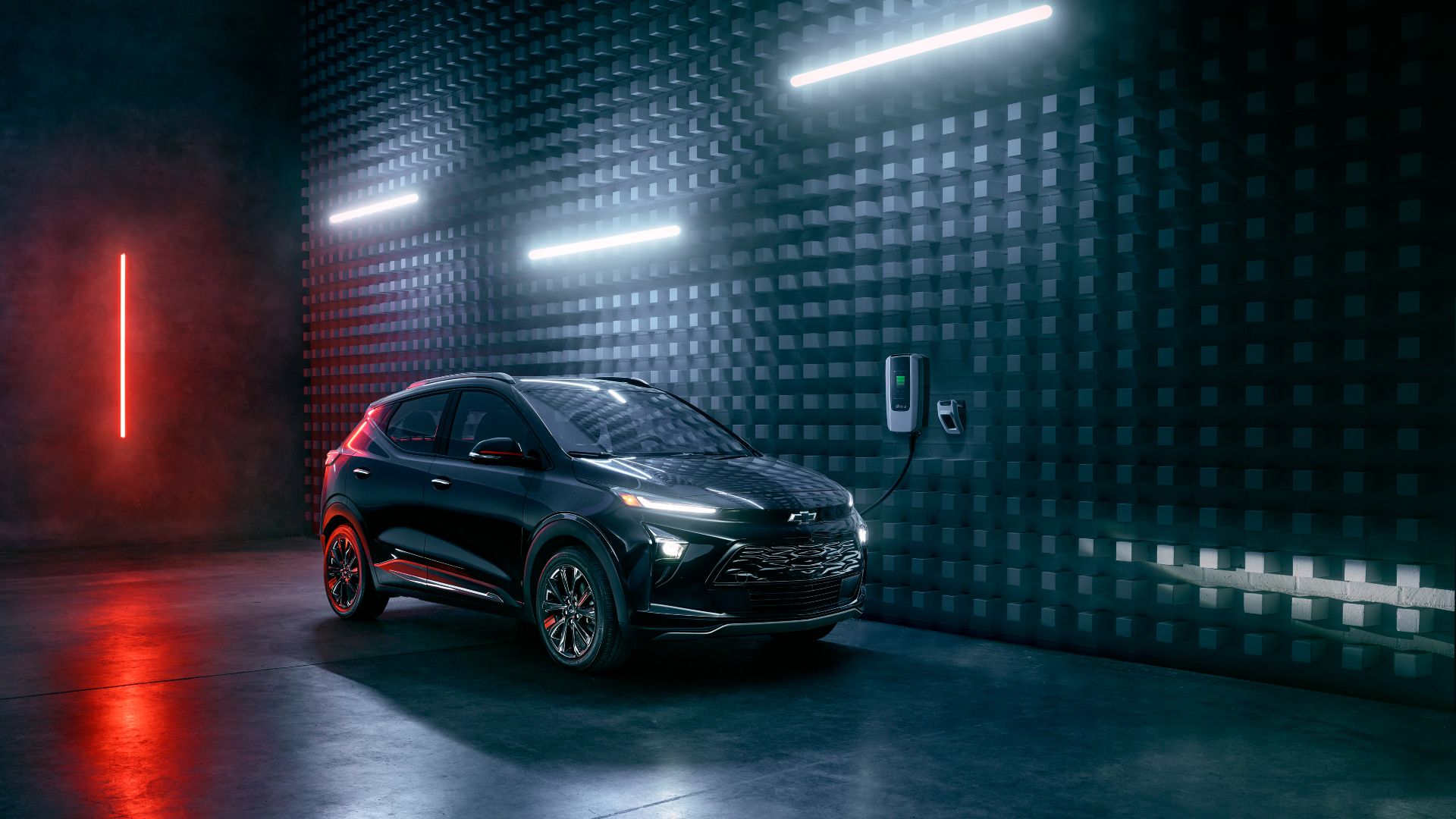
For those of you who missed the Bolt, its EUV version will be returning to North American roadways in 2025. Chevrolet announced back in 2023 that it would give the Bolt nameplate another chance, only this time with it utilizing Ultium architecture. For a 2025 Bolt EUV, you can expect this, according to current CEO Mary Barra:
Our prior portfolio plans included several newly designed vehicles in the entry-level segments and a capital commitment of $5 billion over the next several years. However, by leveraging the best attributes of todays Bolt EUV, as well as our Ultium platform, our software, and NACS, we will deliver an even better driving, charging, and ownership experience with a vehicle we know customers love.
Of course, specific details for the EUV series are still kept under wraps by Chevrolet, as they are still in the testing phase of this model using Ultium technology. That said, you can count on this vehicle offering a better standard range because of Ultium, with ~300 miles per charge being the standard for the brand as of this year. This range could exceed 600 miles with GM's second-generation lithium-metal batteries, so there is hope for an even better range from the all-new Bolt EUV. With these upgrades, expect a higher MSRP. However, we cannot give those figures *yet*, but when we find them: We'll let you know.
Other Eco-Friendly Plans Revealed

General Motors aims to get half its car production and sales by 2030 to be green-energy-based vehicles. For GM, expanding this market will mean a more extensive offering of EVs for the consumer. They're confident that the situation will help reduce production costs and shape the options of customers still looking for reasons to start transitioning to emissions-free cars.
With the objective that half of its production and sales in 2030 will be of cars based on green energies, GM has outlined a critical path encompassing manufacturing, supply, and governance, allowing it to reach this goal in seven years.
GM to stop making Chevrolet Bolt, its best-selling electric vehicle
General Motors is ending production of its Chevrolet Bolt models by the end of this year, the Michigan automaker said Tuesday, adding that the local plant currently tasked with making the Bolt will be converted for the manufacturing of electric pickup trucks.
GM is stopping Bolt production even though company officials say it's their top-selling electric vehicle. GM debuted the all-electric car in 2016, a decade after it introduced the EV1, which was discontinued in 2002. The Bolt is one of the reasons why GM is a top market leader in the EV market, GM CEO Mary Barra said Tuesday.
"We delivered more than 20,000 EVs in the U.S. in the quarter, on the strength of record Bolt EV and Bolt EUV sales and rising Cadillac LYRIQ deliveries," Barra said during an earnings call. "This moves us up to the second market position and increased our EV market share by 800 basis points."
GM workers build the Bolt in a 4.3 million-square-foot facility in the Detroit suburb of Orion Township. In 2022, GMsaidit planned to renovate the Orion plant and use it for making the electric versions of the GMC Sierra and Chevrolet Silverado pickup trucks. Barra said Tuesday that the renovation project is almost finished.
"We have progressed so far that it's now time to plan to end the Chevrolet Bolt EV and EUV production, which will happen at the very end of the year," Barra said. "When Orion EV assembly reopens in 2024 and reaches full production, employment will nearly triple, and we'll have a company-wide capacity to build 600,000 electric trucks annually."

In discontinuing the Bolt, the automaker is moving away from hatchback-style vehicles and opting for SUVs and pickup trucks, models that customers are increasingly favoring the most, Ivan Drury, director of insights at automotive research firm Edmunds, told CBS MoneyWatch.
"GM likely viewed the Bolt models as little more than stepping stones to its next-generation EV technology," Drury told CBS MoneyWatch. "While range and price are compelling, the design, size and slow charging speeds never quite caught on with consumers, and a series of recalls due to fire hazards likely also made an impact."
Challenges ahead for EV leader
GM is managing the transition from combustion engines to electric vehicles well, according to Edward Jones analyst Jeff Windau, but the successful conversion will still be difficult to orchestrate. As EV sales start to increase and gas vehicles wind down, GM could find itself in a position where it's not fully using factories for either type of vehicle, which would hurt profits, he said.
EVs are drawing more attention within the automotive industry, as shoppers grow curious about their capabilities, and automakers like Tesla and Ford race to assert dominance in the market. A survey released earlier this year from Deloitte found that nearly 7 out of 10 car shoppers want to buy an EV but are concerned about the price.
The average new EV sold for $58,940 last month, up from $58,385 in February, according to Kelley Blue Book. New tax credits enacted last year by President Joe Biden in theInflation Reduction Actcould drop that figure lower for some drivers.
The U.S. Treasury Department released a list ofwhich vehicles are now eligible for a $7,500 tax credit. The Bolt, along with four other Chevrolet vehicles, is among the vehicles that qualify for the tax break.
The automaker plans to roll out a Chevy Equinox EV later this year that will start around $30,000; it's also working on a lower-cost EV with Honda.
New battery cell plant in U.S.
GM and South Korea's Samsung SDI plan to invest more than $3 billion in a new electric vehicle battery cell plant in the United States, the companies said Tuesday. Samsung was picked by GM as partner for its fourth joint venture battery cell factory, after some Chevrolet Bolt batteries made by LG caught fire, forcing GM to recall about 142,000. The recall cost GM about $1.9 billion, and the automaker said it was reimbursed for the cost by LG.
A global shortage of computer chips and other parts forced the auto industry to slow production last year, driving up prices as demand stayed strong. But the parts shortages and production are starting to improve. GM said it expects to start turning low-to-mid single-digit profit margins on electric vehicles in 2025.
GM reported $2.37 billion in profit from January through March, up from $1.99 billion in the previous year.
The Associated Press contributed to this report.
Khristopher J. BrooksKhristopher J. Brooks is a reporter for CBS MoneyWatch. He previously worked as a reporter for the Omaha World-Herald, Newsday and the Florida Times-Union. His reporting primarily focuses on the U.S. housing market, the business of sports and bankruptcy.

